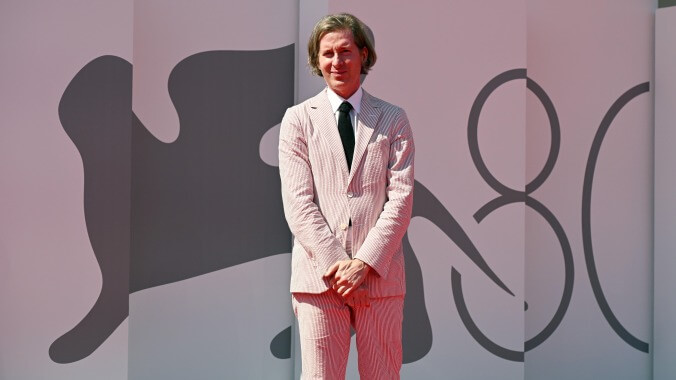Wes Anderson speaks out against alterations of Roald Dahl's books
"I don’t want even the artist to modify their work," the Henry Sugar director said at the Venice film Festival. "What's done is done."

Wes Anderson is no stranger to the whimsical, slightly cynical, and occasionally cruel worlds of British author Roald Dahl: The filmmaker is currently on the promotional beat for his second adaptation of Dahl’s work, the Benedict Cumberbatch-starring short(-ish) film The Wonderful Story Of Henry Sugar. (He previously adapted Dahl’s Fantastic Mr. Fox in stop-motion back in 2009.)
At the moment, Anderson is in Venice, where he recently showed off the 37-minute film, which will be part of an anthology of short movies released by Netflix under the Henry Sugar name. (Only one of which, The Swan, comes from Dahl’s actual Wonderful Story Of Henry Sugar And Six More short story anthology; the other two, Poison and The Ratcatcher, are pulled from other portions of Dahl’s short fiction career.)
Given his status as one of Hollywood’s foremost Dahl adapters, it’s not surprising to hear that Anderson was asked about the recent controversy surrounding the author’s books. (In case you missed it: Recent editions of Dahl’s works have had some of the more mean-spirited, or societally out-of-touch, bits of language edited out of them—generally, those related to either mental illness or negative descriptors of people’s appearances, or references to gender.) When asked about it at Venice, Anderson expressed his unhappiness about the changes in what were (for Wes Anderson) just about the harshest terms imaginable:
I don’t want even the artist to modify their work. I understand the motivation for it, but I sort of am in the school where, when the piece of work is done and the audience participates in it, we know it—I sort of think what’s done is done. And certainly, no one besides the author should be modifying the work—he’s dead.
Anderson also weighed in, albeit very briefly, on the ongoing strikes affecting the industry. (As a writer-director, Anderson is a member of the WGA.) “An equitable deal has got to be reached for anybody to go forward,” he said in response to a question about the strikes. “People are suffering.”